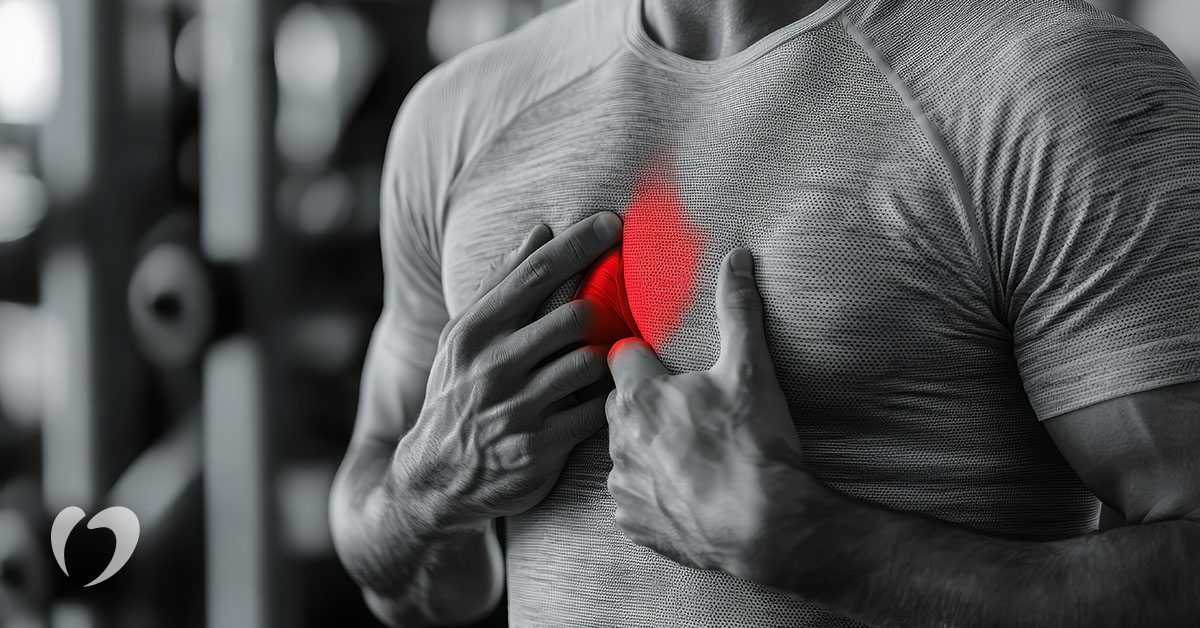Heart Rhythm Disorders in Athletes: Risks & Management

Athletes often represent the pinnacle of physical fitness, but even the strongest hearts are not immune to heart rhythm disorders. For some athletes, especially those engaged in high-intensity exercise and long-term endurance training, intense physical activity can reveal underlying arrhythmias or even contribute to electrical changes in the heart.
While regular exercise is a cornerstone of good heart health, it’s essential to understand how it affects your heart rhythm and what symptoms to watch for. Whether you’re a competitive athlete or a weekend warrior, early recognition and thoughtful management can help prevent complications and keep performance on track.
The impact of high-intensity training on heart rhythm
Long-term physical training leads to natural physiological changes in the heart. Sometimes referred to as “athlete’s heart,” these changes include a larger, more efficient heart muscle and a lower resting heart rate. Most of the time, these are signs of cardiovascular fitness.
However, in some cases, these structural and electrical changes can blur the line between healthy adaptation and potential rhythm problems, particularly in individuals with a family history of heart conditions or genetic predispositions. The risk is higher in endurance athletes who engage in prolonged, repetitive cardiovascular training over many years.
What rhythm disorders are most common in athletes?
Athletes can experience a range of heart rhythm disorders, such as atrial fibrillation, bradycardia, and ventricular arrhythmias, but other conditions may occur as well.
Atrial fibrillation (AFib) — fast or abnormal heartbeats from the upper chambers of the heart — is one of the most commonly reported arrhythmias in older endurance athletes. Some also experience bradycardia, or an unusually slow heart rate, which can lead to fatigue or dizziness.
Ventricular arrhythmias start in the lower chambers of the heart and can lead to more serious complications if left untreated. In most cases, rhythm issues in athletes are mild, but they shouldn’t be overlooked. Early detection and careful monitoring are key.
In addition to internal rhythm disorders, athletes may also face the risk of external trauma. Commotio cordis is a rare condition that occurs when a blow to the chest disrupts the heart’s rhythm and causes sudden cardiac arrest. While this condition affects a small number of people each year, it underscores how both internal and external factors can disrupt the heart’s rhythm.
Warning signs athletes should not ignore
Athletes are often used to pushing through discomfort, but heart-related symptoms should never be brushed off. Warning signs of a potential rhythm disorder include:
- Unexplained fatigue or reduced performance
- Heart palpitations or fluttering sensations
- Dizziness, lightheadedness, or fainting
- Chest discomfort during or after exertion
If any of these symptoms occur, it’s important to seek evaluation from a medical provider, especially if they happen during exercise.
Managing heart rhythm issues in active individuals
If symptoms arise, the first step is talking to a medical provider — ideally, a heart rhythm specialist. Evaluation may include tracking symptoms, adjusting training intensity, or, in some cases, medical intervention.
For many athletes, management focuses on minimizing risk while maintaining activity levels. This might mean scaling back temporarily, monitoring heart rate more closely, or making other individualized adjustments based on the type and severity of the rhythm issue. With proper care and a tailored plan, most athletes can return to their sport safely and confidently.
Play smart, stay strong
Your heart is your body’s engine, and like any finely tuned machine, it needs attention. Don’t ignore the warning signs. If something feels off during training or competition, take a step back and get it checked.
The Heart Rhythm Institute at the Oklahoma Heart Hospital offers expert evaluation and personalized care for arrhythmias in athletes and active individuals. Whether you need a baseline screening or help managing symptoms, our team is here to support your health and your goals.
